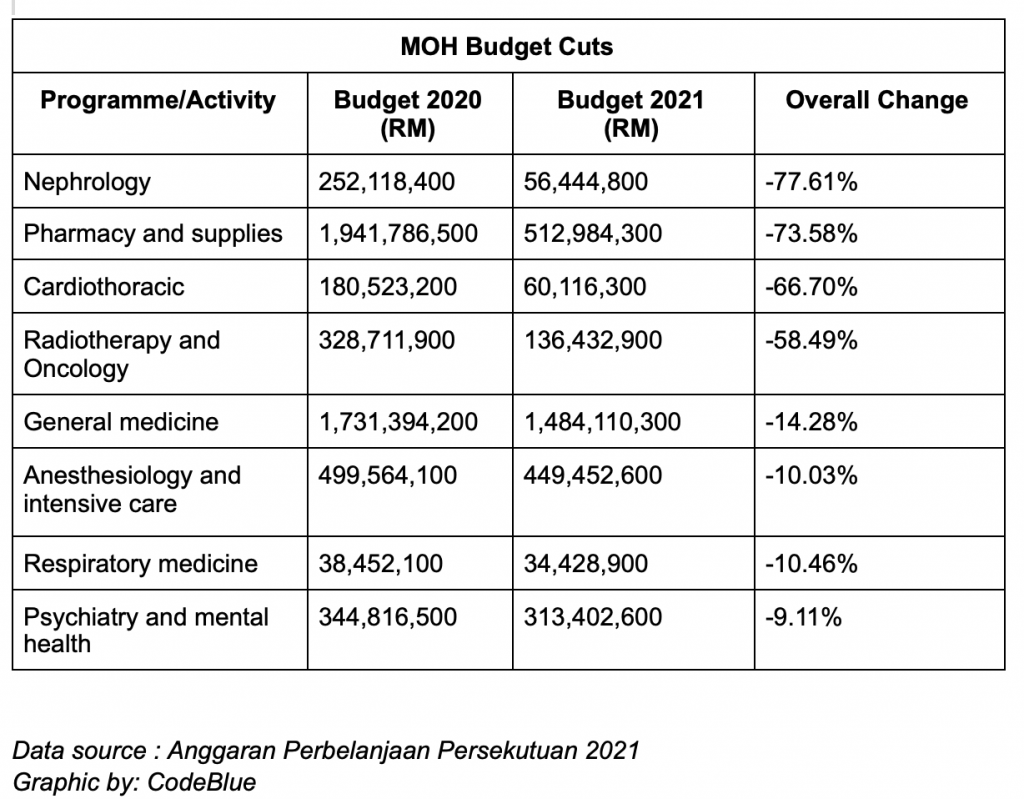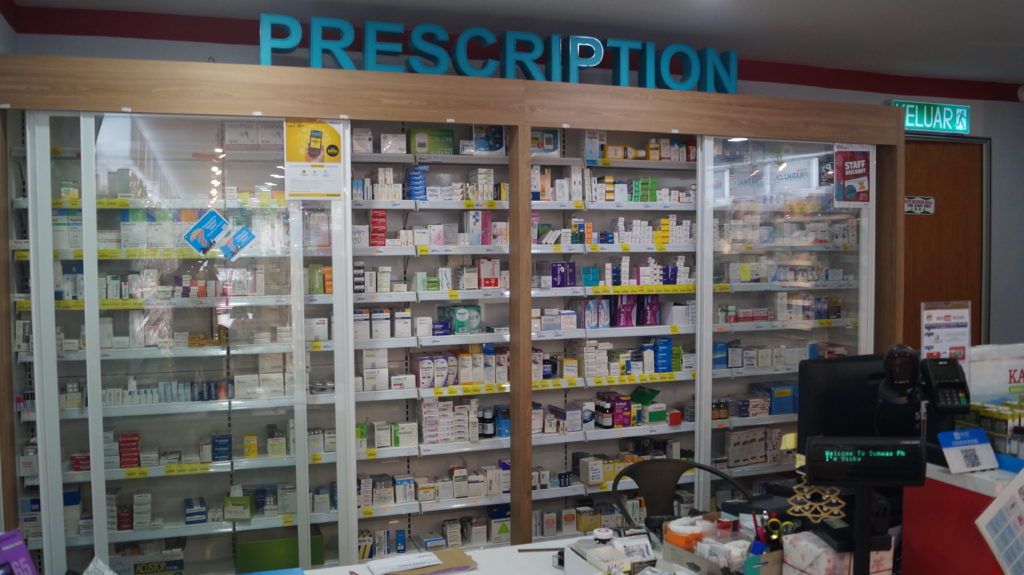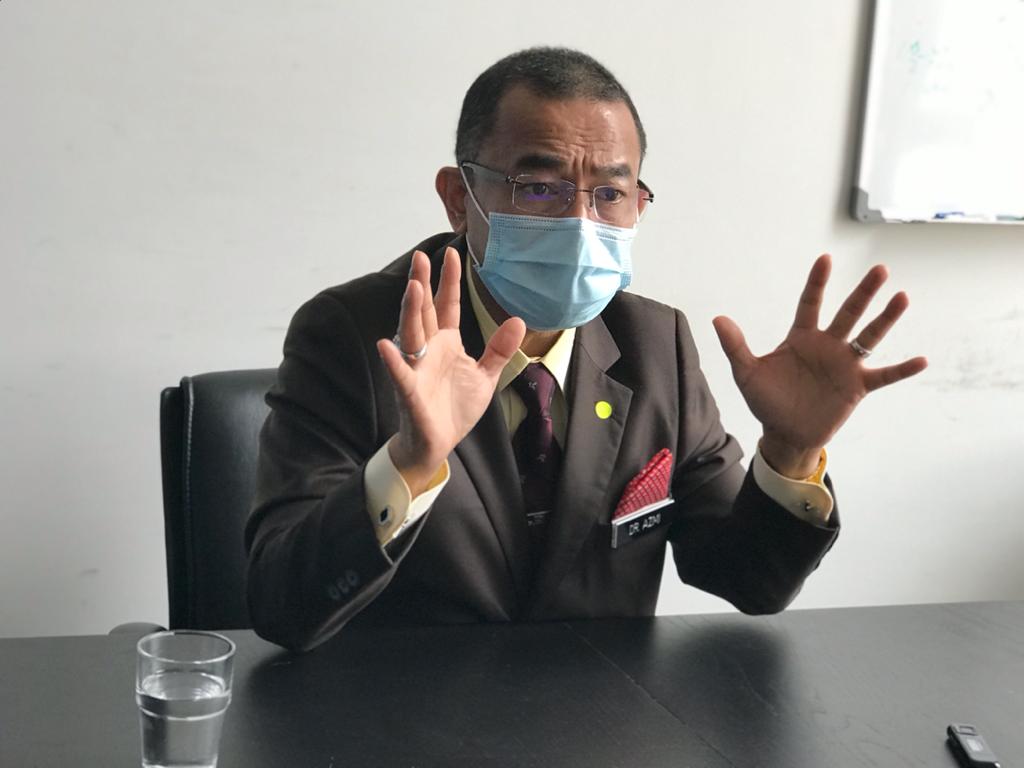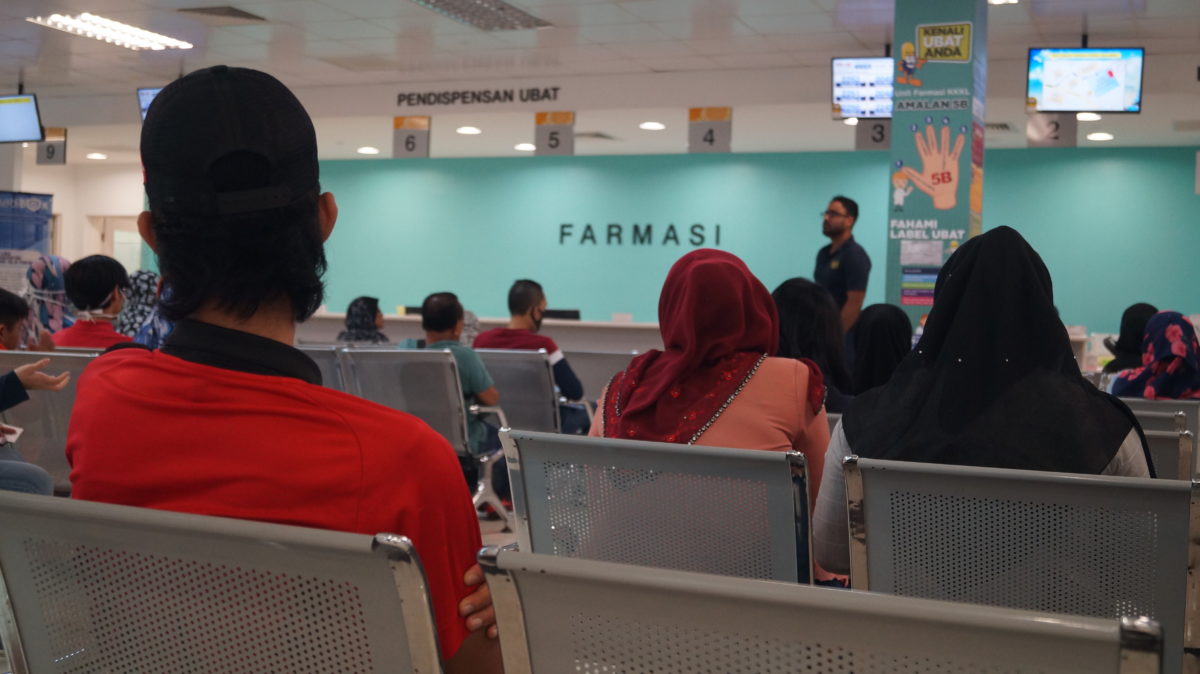KUALA LUMPUR, Nov 23 — The government’s proposed consolidated budgets next year for drugs and medical supplies are not transparent and will cause clinical departments to run out of money earlier than expected amid greater bureaucracy, health professionals said.
CodeBlue reported that department budgets in the Ministry of Health’s (MOH) 2021 budget were slashed by up to 78 per cent for various health services and public health, among other programmes. The budget for pharmacy and supplies was cut by 73.58 per cent from RM1.94 billion last year to RM512.98 million this year. Clinical departments like nephrology had their budget cut by 77.61 per cent, cardiothoracic by 66.70 per cent, radiotherapy and oncology by 58.49 per cent, and general medicine by 14.28 per cent.
Finance Minister Tengku Zafrul Aziz and MOH then released statements saying that the allocations for drugs and other medical supplies (including reagents, vaccines, consumables) had been moved from individual programmes (medical, public health, pharmacy services, and dental) into two lump-sum budgets under “Program Khusus” (Specific Programmes) totalling RM4.29 billion.
CodeBlue spoke to two doctors and one pharmacist — who are familiar with methods of financing and hospital administration in MOH — on condition of anonymity, as well as Mark Cheong, a lecturer from the School of Pharmacy, Monash University, to explain the implications of this unconventional accounting shift in MOH’s 2021 budget.
A doctor told CodeBlue that the budget that will end up being tabled in Parliament is usually smaller than what MOH submits to the Finance Ministry. For example, if MOH submits RM10, the allocation it gets may be RM8.
“MOH will go back to the drawing board and allocate based on RM8,” the doctor told CodeBlue.
As the year progresses, some departments or activities will spend more than others and may exceed their allocation. Then, MOH will look into certain departments where the money is not spent and transfer the funds from one to another.
“If still not enough, then MOH will request additional supplementary vote from the Ministry of Finance,” the doctor said, referring to the Supplementary Supply Bill usually tabled by the federal government for Parliament approval of additional expenditure for the year beyond the original budget.
“The onus is up to the managers at MOH or state levels to allocate prudentially.”
The doctor noted that even though there is a consolidation of budgets under Specific Programmes for 2021, there is still the supplementary supply vote to ask for more money.
Individual Departments Will Run Out Of Money Earlier Than Before, Long Wait For Supplementary Budget

Once the federal government budget is approved, the money allocated for each department in MOH only comes in sometime in February, a medical consultant told CodeBlue. Individual departments in hospitals will have no option to change it.
Once the money comes in, the department puts in requests to purchase items specific to their department, which then goes through in March.
By July or August, departments will start running out of money, the medical consultant said. Then, the government will usually table a Supplementary Supply Bill in Parliament.
According to the medical consultant, for most years, only half of the money approved in the Supplementary Supply Bill is received first, and the balance later in November. This becomes hard for departments to spend the money in November, as accounts close during this time.
While waiting for the extra funding approved in the Supplementary Supply Bill to come in, departments that run out of money turn to the pharmacy department, as pharmacy usually gets the biggest budget. However, the medical consultant said that pharmacy, which is the usual safety net, can no longer supplement other departments because of its huge 74 per cent budget cut under Budget 2021.
The medical consultant also said by consolidating the budget for medical supplies under one programme, “Specific Programmes”, this will mean that every department in MOH will be requesting for a supplementary supply (or additional funds) earlier than mid-term, as the departmental budgets don’t only cover state hospitals, but also district hospitals plus government health clinics.
Moreover, the medical consultant said that some years, the supplementary supply vote doesn’t come through. Hence, with a consolidated budget, it simply makes things more difficult as no one will know which MOH department will get their additional budget requests approved.
Occasionally, while waiting for the supplementary supply vote, a particular department in MOH will ask their suppliers to provide them, prior to payment, items needed.
The medical consultant also explained that individual departmental budgets are only used to purchase items specifically for their department. For example, the orthopedic department purchases implants, while the medical department purchases specific antibiotics that are used by their department.
However, general items like personal protective equipment (PPE), and medications for non-communicable diseases like hypertension and diabetes are all purchased under the pharmacy and supplies budget.
Unclear Where The Money For Pharmacy To Purchase Supplies Comes From
| Pharmacy and Supplies | ||
| Line Series | Budget 2020 (RM) | Budget 2021 (RM) |
| 10000 (Emoluments) | 491,894,900 | 512,984,300 |
| 20000 (Services and Supplies) | 1,449,891,600 | 0 |
| TOTAL | 1,941,786,500 | 512,984,300 |
An anonymous pharmacist, who spoke to CodeBlue, said that how the pharmacy department is going to run under Budget 2021 will be a big puzzle, as the 10000 line series in its budget — the only allocation under pharmacy and supplies — does not go to the pharmacy department, but to the finance division to pay emoluments for pharmacists.
Under Budget 2021, in pharmacy and supplies, there are two categories — series 10000 (emoluments) and 20000 (services and supplies). The total allocation was RM1.94 billion for the year 2020, but this was cut by 73.58 per cent to RM512.98 million for the year 2021.
For series 10000, the budget was increased from RM491.89 million for the year 2020 to RM512.98 million for the year 2021.
“The amount of RM512,984,300 under 10000 series is not held by pharmacy, but by the finance division for emoluments of the 8,161 pharmacy staff,” the anonymous pharmacist told CodeBlue.
On the other hand, under the 20000 series, the budget allocation for pharmacy and supplies was totally cut from RM1.45 billion this year to zero next year.
“Thus, it is not even a cut of 73.58 per cent, but nothing at all to manage under pharmacy and supplies.”
The pharmacist explained that even in the current system, the pharmacy department has to justify the amount of additional money it would need to run the department.
This will be presented during a meeting with the under-secretary of MOH’s finance division, but the waiting time is long.
“The waiting can take two to three months, as the finance division has to consolidate the budget by taking away money from other divisions or programmes,” the pharmacist said.
“But during economic downturns, it can take close to the end of the year to receive the funds, by which we had to frantically do last-minute purchases to finish the money.”
“We can expect that all medical disciplines, including pharmacy and supplies, will undergo a very tough time in 2021. I can expect that the process of applying for additional allocation will be different and difficult.”
Anonymous pharmacist
“I do not agree with this system at all. How pharmacy and all the other affected disciplines are going to run their day-to-day operation is a big puzzle.”
Bandar Kuching MP Dr Kelvin Yii told a recent webinar organised by Sarawak PKR that with the allocations for drugs and medical supplies across MOH programmes reallocated to lump-sum budgets under Specific Programmes, there will be too much discretion in decision making.
Lanang MP Alice Lau, who is also a pharmacist, recently told the Dewan Rakyat that the accounting shift for the pharmacy and supplies budget will only increase bureaucracy and paperwork for applicants across departments to apply for additional allocations.
All NCD Drugs, Even IV Fluids, Are Purchased From Pharmacy Budget

Mark Cheong, lecturer from School of Pharmacy at Monash University, told CodeBlue that the pharmacy budget that has been slashed is used for purchasing all medical supplies and consumables, as well as drugs that are used by more than one department.
“This commonly includes drugs for NCDs such as hypertension and diabetes, and drugs for common diseases seen in primary care,” Cheong said.
“In terms of anti-cancer drugs, it depends. Newer and more expensive treatments such as biologics will go under the oncology budget, while other cytotoxic drugs may be purchased under the pharmacy budget.”
Cheong said PPE, bandages, normal saline, intravenous drips, and fluids are all purchased under the pharmacy budget.
According to Cheong, pharmacy usually has the largest drug and supplies budget, compared to individual departments or clinical specialties.
“So the pharmacy budget is used throughout the year for general-use drugs and consumables, and also used to support other departments once their budget for specialty drugs runs out.
“As to whether the amount each year for pharmacy is sufficient, my experience is that it is barely so and it depends on who you ask,” the lecturer from Monash University said.
Deputy Minister Unsure Who Will Approve Allocations From ‘Specific Programmes’

According to Deputy Health Minister I Dr Noor Azmi Ghazali during an exclusive interview with CodeBlue, the main aim for this consolidation is to properly control the budget and also for proper monitoring of the details.
However, he said so far, there has not been anyone who has been given the authority to approve applications from individual departments for additional allocations from MOH’s Specific Programmes in Budget 2021.
“So far, I have not heard of anyone given this authority as everyone knows the power will be given to the top highest rank in MOH, when there’s a tender and all that. There will be a committee to decide and a committee to choose and they will make the decision,” Dr Noor Azmi said.
Moreover, Dr Noor Azmi said that the criteria for individual departments to apply for additional allocations from Specific Programmes have not been fixed, as he emphasised that Budget 2021 is still being debated.
“As you all know, the debate is still going on. There can be changes. We have to wait for the final say from the Minister of Finance that will be next week,” Dr Noor Azmi told CodeBlue last Thursday.
The budget is scheduled for a policy vote in Dewan Rakyat this Thursday, amid uncertainty on whether it will be passed as the Perikatan Nasional government has a razor-thin majority in the House. Several Umno lawmakers have also told Parliament that they will only lend conditional support for Budget 2021, depending on certain issues with the budget they want addressed. This is the first time in recent history that passage of a federal government budget in Parliament is not guaranteed.








